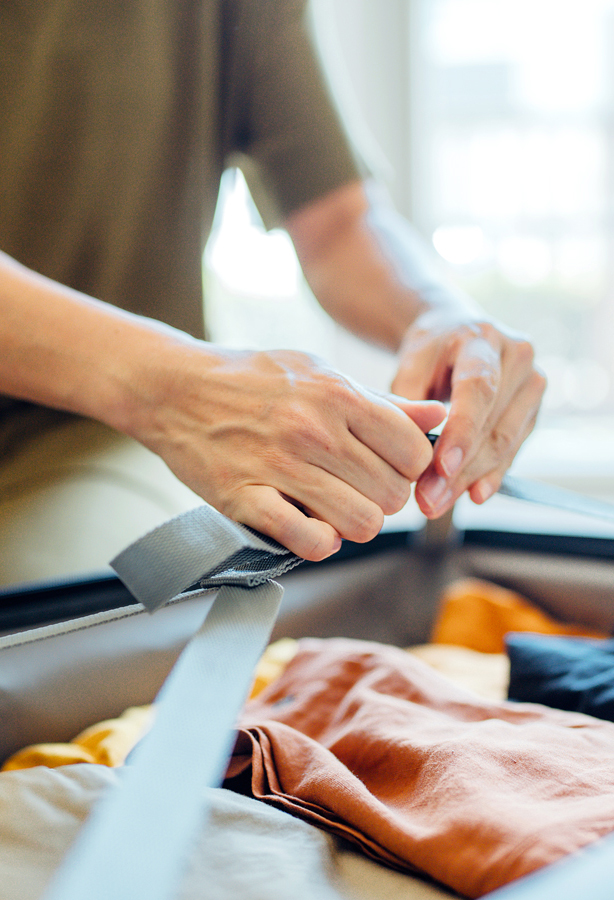Packing mindfully can take much of the stress out of the start of a vacation, ensuring you pass through the airport without a hitch. Though you might try to limit yourself to carry-on baggage, it’s not always possible to do so. Whether you’re embarking on an extra long vacation that requires more clothing or hoping to bring large souvenirs home, you might find yourself needing to check a bag. Regulations governing what passengers can and cannot carry vary considerably between checked and carry-on baggage. To help you prepare for your next trip, we’ve compiled a starter guide to six things you should never pack in your checked luggage.
Passports and Other Valuables

According to a report published by the aviation experts at SITA, baggage mishandling is far from an isolated problem. In 2022, around 26 million bags were lost, damaged, or delayed — a figure which equates to about 7.6 bags for every 1,000 passengers. Delayed bags accounted for around 80% of that figure, with European airports performing considerably worse than those in North America or Asia.
Although you’re likely to be reunited with your checked suitcase within a few days, it’s never a good idea to pack anything valuable in it, just in case. That means keeping the important things with you: passports and other paperwork such as supporting documents for visas, cash, jewelry, and anything of sentimental value. When packing, think about the type of activities you’re about to embark on, too. If you couldn’t do without something on day one of your vacation, such as hiking boots or swimwear, consider carrying it on the airplane.
Essential Medicines
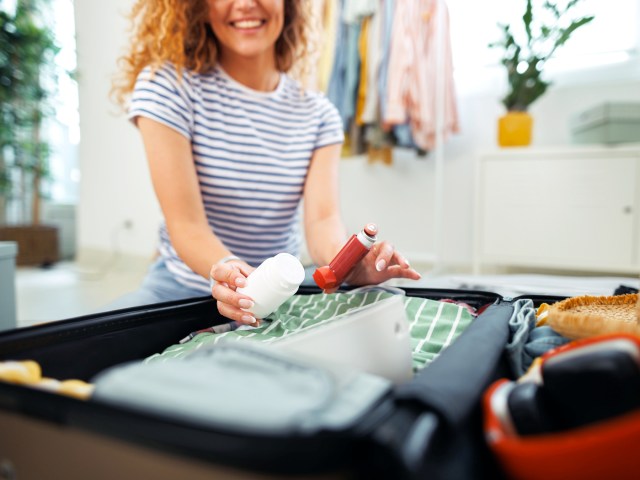
The Transportation Security Administration (TSA) permits most medical-related items in checked luggage. If you need to carry inhalers, EpiPens, or insulin, for example, there are no rules preventing you from packing those items in your suitcase and having it meet you at your destination.
Nevertheless, it’s wise to carry any essential medicines with you, particularly if there’s a tight connection involved. Though delayed luggage usually turns up eventually, that’s no consolation if the medication you need is unavailable or hard to acquire at your destination. To be absolutely sure liquids aren’t confiscated by mistake, make sure such medicines are clearly labeled and carry documentation from your medical practitioner that clarifies their purpose.
Dried Coconut — and Other Flammables and Hazardous Materials
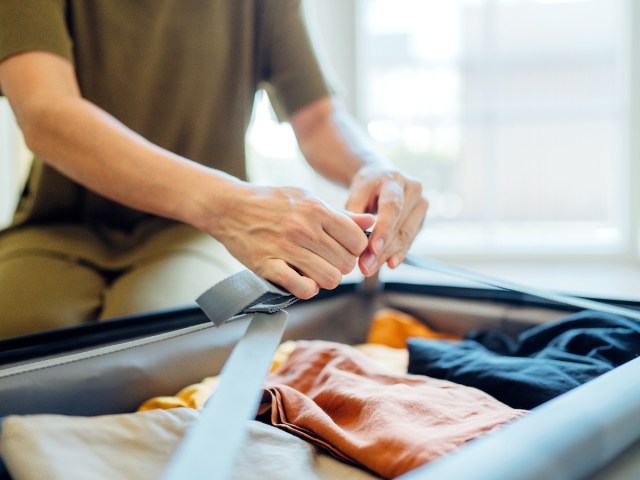
Dried coconut is prohibited from checked luggage, but perhaps not for the reason you expect. Copra, the name for the dried flesh of a coconut, contains a high proportion of oil, which means that this seemingly innocuous item is actually flammable. So on the off chance you happen to be traveling with some, don’t expect to be able to carry it in your checked suitcase.
Likewise, objects such as aerosols are closely scrutinized as they often contain flammables, too. Nozzles must be protected by a cover to prevent the accidental release of their contents. The FAA’s guidance states that flammable aerosols that don’t qualify as medicinal or toiletries are not permitted in checked (or cabin) baggage. A diverse range of other items — such as bear spray (though not pepper spray), paints and solvents, children’s chemistry sets, mercury thermometers, and lighters with fuel — are also classified as hazardous material by the FAA and can’t go in the hold.
Lithium Batteries
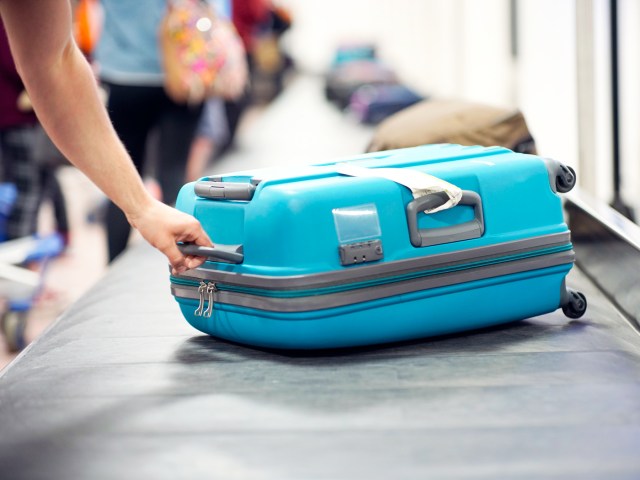
It’s hard to imagine getting through modern life without the aid of lithium-ion batteries. They power a wide range of electronic devices, including laptops, cell phones, tablets, and power banks, as well as personal items such as hair styling gadgets and toothbrushes. But if lithium batteries are faulty or short-circuit, they can overheat and even catch fire.
Between March 2006 and March 2024, the FAA reported 476 flight incidents involving smoke, fire, or extreme heat emanating from lithium-ion batteries. For this reason, they aren’t routinely allowed in the hold of an aircraft. Instead, you’ll be asked to carry any spare lithium batteries with you into the cabin. This is because if an incident were to occur, any smoke is more likely to be detected before the situation escalates into a fire. Flight attendants would be able to respond much more quickly, protecting those onboard.
Electronics
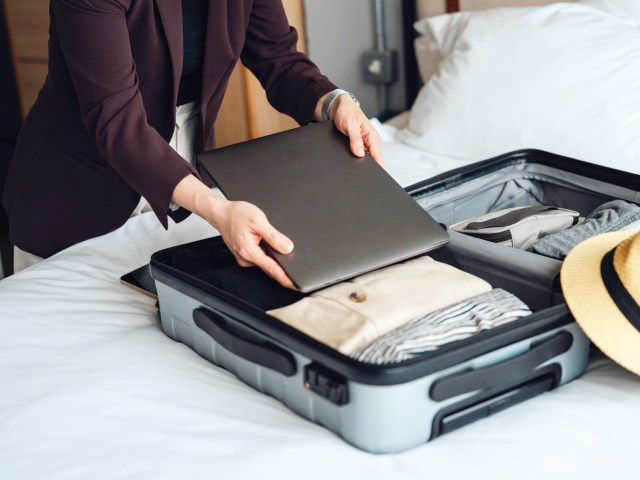
Similar regulations concerning electronics are largely in place to avoid the risk of a fire breaking out in the hold. Portable electronic devices such as cameras, cell phones, and laptops contain lithium batteries and, as such, pose a risk to those on board if they are left switched on.
Technically, passengers are allowed to transport such items in checked bags if they are switched off (as opposed to being placed in sleep mode). However, as these types of electronics are often expensive, you probably won’t want to let them out of your sight during the journey, which rules out transporting them in the hold. Also be aware that some items classed as electronics are never allowed on any flight, regardless of checked or carry-on baggage. Examples include e-cigarettes and vaping devices.
Certain Personal Care Items
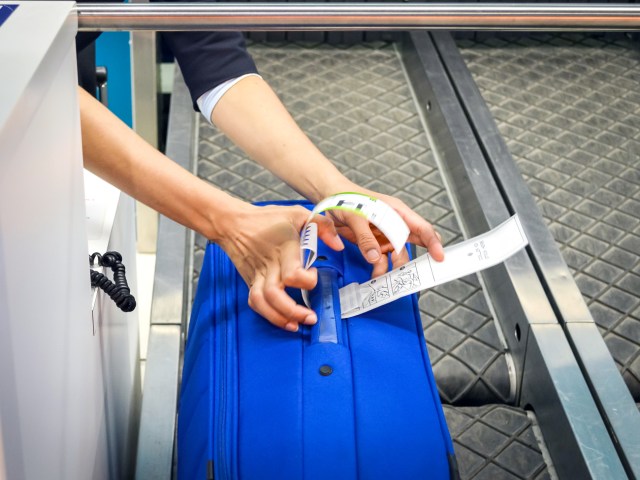
Looking good while on vacation is an important consideration for many of us. If you have a tried-and-tested routine, you may not wish to rely on the personal care items the hotel provides. Instead, you might prefer to carry your own hair straighteners or curling tongs, for example.
Corded items are accepted in the hold, but if you can’t plug it in, it can’t go in your checked baggage. That’s because of the way such cordless devices are powered. Some use a gas such as butane, which is flammable. (Incidentally, you are permitted to carry one gas cartridge into the cabin, though a safety cover must be fitted and you won’t be able to take a refill.) Other cordless hair curlers or straighteners rely on lithium batteries, which make them similarly problematic for air travelers.
More from our network
Daily Passport is part of Inbox Studio, an email-first media company. *Indicates a third-party property.






